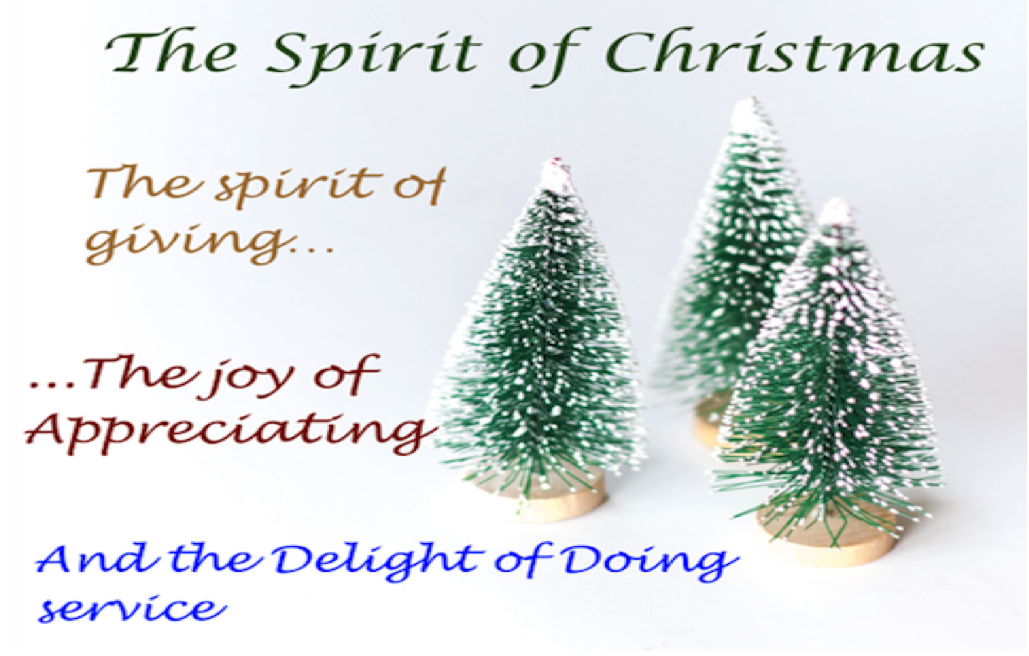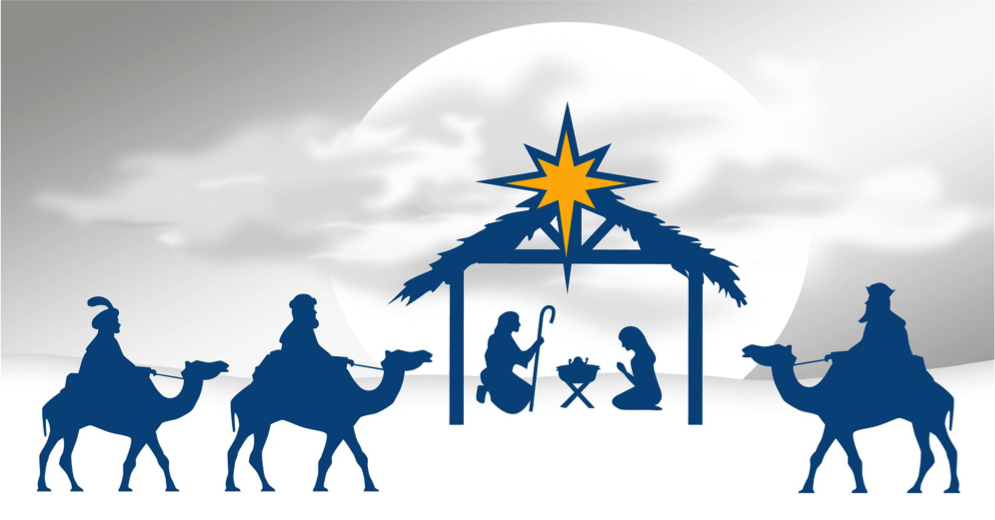It is Christmas day today, and the best day to really reflect on the true meaning and spirit of Christmas.
Naturally, for many of us, Christmas means holiday from work and celebration at home with friends and family. During this festive time, we anticipate a lot of eating, drinking, partying, and exchanging of gifts with family members and friends.
And of course, we tend to spend too much money, especially with so many sales and irresistible bargains, both online and at the stores.
What is Christmas?
So, what is Christmas, I pondered? To put it simply and accurately, Christmas is an annual festival that honors the birth of Jesus Christ. It is observed on December 25. Today, Christmas is a religious and cultural celebration for billions of people around the world. Christians and non-Christians alike celebrate Christmas Day that is a public holiday in many countries.
But, do you know what the word ‘Christmas’ actually means? Or where the term Christmas comes from? Here’s what you need to know.
Essentially, the whole purpose of Christmas is to celebrate the birth of Jesus Christ, the Messiah or Savior who came to this world to save humankind. So, naturally we would assume the first part of the term originates from the word ‘Christ.’
What’s in a Name?
The word Christmas actually comes from Middle English Cristemasse, which is derived from Old English Cristes-messe. It means Christ’s mass and was first recorded in 1038. According to The Catholic Encyclopedia, the term was written as Cristes-messe in 1131.
The word Christ originates from the Greek word Christós, which is a translation of the Hebrew word, Messiah, meaning the anointed one. Hence, Christ and Messiah are synonymous, the former originating from Ancient Greek and the latter from Classical Hebrew.
The second part of Christmas—messe—derives from the Latin word missa or missio. And it signifies the celebration of the holy Eucharist tradition of eating bread and drinking wine in memory of Jesus Christ. According to the Catholic religion, Eucharist is also called Holy Communion and the Lord’s Supper.
When did we start celebrating Christmas?
Early Christians initially opposed the celebration of Christ’s birth. For them, Easter was the main holiday and the birth of Jesus was not celebrated. One of the reasons was that the early Christians perceived birthday celebrations as a pagan ritual and so they rejected the idea of honoring Christ’s birthday.
Later the Catholic Church leaders decided to commemorate the birth of Jesus and made it a holiday celebration. The bible did not mention a date for Christ’s birth. According to calendar calculations of events during that time, Jesus was born between September 21 and 24. Pope Julius I, however, declared December 25 as the Nativity Feast Day.
So, Why was Christmas Celebrated in December?
For centuries, mid-winter was a time for many pagan celebrations in Europe. Some believed that the early church chose this date to coincide with the traditional winter revelries and to embrace the customs of those ancient festivals during this time of the year. So, the end of December was deemed a perfect time to celebrate Christ’s birth.
By having Christmas at the same time as the traditional winter festivals, the early church leaders thought that Christmas would become popular.
However, the disadvantage of holding Christmas with traditional winter festivals means that the celebration of Christ’s birthday is intermingled with unorthodox practices.
Modern Christmas Festivity

Today, popular modern customs for Christmas include gift giving, Christmas caroling, exchange of Christmas cards, church services, a special meal, and the display of various Christmas decorations. The latter includes Christmas trees, Christmas lights, nativity scenes, wreaths, mistletoe, and holly.
Since giving presents and having parties involve more shopping and spending activities, the Christmas holiday season has become an important sales period for retailers and other businesses.
As a result, Christmas becomes more commercialized and the true meaning of celebrating the birth of Jesus Christ becomes unclear and somewhat lost. Today, not many of us really reflect on the true meaning and spirit of Christmas.
The Spirit of Christmas—Its True Meaning
The traditional purpose of Christmas is to celebrate the birth of baby Jesus, who symbolizes unconditional love, light, hope, and peace. It makes sense that Christmas is a joyful season for true believers of Jesus Christ.
But the Christian ideal for the spirit of Christmas does not require one to be Christian or religious.
The spirit of Christmas is not about period of festivity, fun, and celebration for the year-end holiday season. So, what defines the true meaning of Christmas?
To me, Christmas is a state of our heart and mind. It is about change and self-transformation, a time to open our hearts to others … before we open our presents.
As English writer Charles Dickens conveys in his novel, A Christmas Carol, the true spirit of Christmas is about giving, appreciating, being grateful, and doing service for others.
The Essence of the Spirit of Christmas
The true essence of the spirit of Christmas encompasses three aspects. These include the spirit of giving, the joy of appreciating, and last of all, the delight of doing service.

The Spirit of Giving:
To embrace the true spirit of Christmas, we need to look within ourselves and be open to giving to others. The physical presents that we give to others symbolize our love toward our significant others. However, we should also reflect for a moment that no physical gift could truly equal the kindness and compassion we have for others and ourselves.
The Joy of Appreciating:
The practice of showing appreciation and gratitude is crucial for our inner health and wellbeing. So many of us feel dissatisfied and discontented with our lives. It’s time to push discontentment, dissatisfaction, negativity, and resentments aside and out of our lives. Instead, instill the joys of appreciating and showing gratitude in our hearts—for it’s so healing to do so.
The Delight of Doing Service:
Doing service can be interpreted in a couple of ways. For starters, it can mean ‘doing service’ to oneself by doing something nice and enjoyable for your self without over indulging or feeling guilty.
Doing service for others embodies putting others first and considering others in whatever we do. When we do service or kind deeds for others, the benefits are often twin-fold. The receiver feels happy. Likewise, the giver delights in being able to help or do service to another person and thus is a good cultivation for the heart and mind.
Doing service to others is clearly illustrated in Dickens’s A Christmas Carol. The story stresses the importance of being kind, generous, and giving during Christmas time. The novel ends with miserly Scrooge transformed into a kind and generous Scrooge who cherishes the delight of doing service.
The spirit of Christmas is akin to the values of truthfulness, compassion, and forbearance. This is the principles of Falun Gong, also known as Falun Dafa.
So, let’s reflect and endeavor to demonstrate the true spirit of Christmas through giving, appreciating, and doing service.
––––––––––––––––––––––––––––––––––––––––––––––––––––––––––––––––––––––––––––
Note: This article was originally written for my students at the Northern Academy of the Arts and Fei Tian College in Middletown to share with them the true meaning of Christmas.
 Dr. Margaret TreyAuthor, Researcher & Wellness Advocate
Dr. Margaret TreyAuthor, Researcher & Wellness Advocate







Great article.
Thank you.